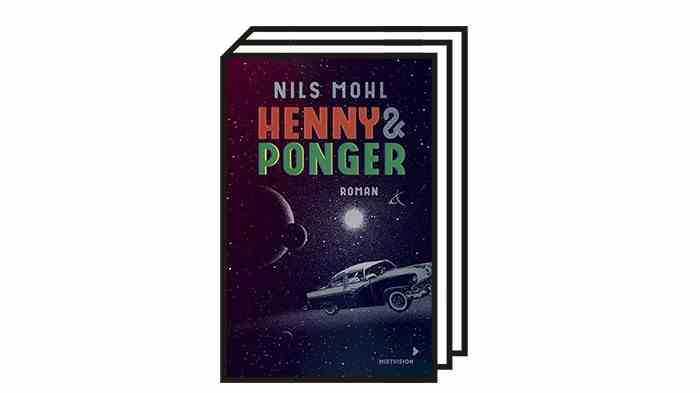A boy on the wrong train is always a good start to a cool love story. A car on the S-Bahn line 31, to be precise, in the direction of Hamburg-Altona. Ponger, that’s the boy, looked at the girl sitting near him for a long time because she’s so unusual and much livelier than the other passengers. “The room around her is silver with her presence.” Henny, this is the girl reading – what a coincidence!? – the same book as Ponger, she wears a yellow rain jacket, is barefoot and has unwieldy twists and turns when it comes to “tingling in the stomach”, to love.
Ponger comes home from work, repairing pinball machines in Susi’s garage. He’s still wearing his overalls, his fingers are dirty from work. A “miracle wrench” that can intuitively repair any pinball machine. He has no memories of where he came from, and Henny is a mystery to him, a creature from another world. She slips a cell phone into his breast pocket to contact him later, then grabs the emergency brake and jumps off the train. A love on the run. She is being monitored by two detectives who are now questioning Ponger and soon show up in Susi’s garage, a little grumpy but, “in all friendship”, ready for and dependent on Ponger’s cooperation. One of them got itchy fingers when he discovered a “Mars Attacks” pinball machine in the workshop: “At least a fast ball,” he says. The game with the extraterrestrials gives an idea of what Henny and Polger are getting involved in.
“I raise my glass and salute you universe. You don’t care if and who I am. You are unfair and therefore full of hope.”
Fiction is, as you know from every love story, always a part of reality. (For a while there are also two Hennys, one is fictitious and you don’t know who she actually is.) How young people experience the world and love is an adventure in this book that surpasses everything. The feelings are too powerful to simply put into sentences. Nils Mohl is a master at letting them become tangible in echoes, forebodings, resonances, and to let other texts resonate through quotations. The history of Henny & Ponger contains echoes of films such as Sofia Coppola’s “Lost in Translation” or books such as John Green’s “Margos Spuren” – which the two read in the S-Bahn – of songs. The motto of the book is from a song by Sophie Hunger: “I raise my glass and salute you universe. You don’t care if and who I am. You are unjust and therefore full of hope.”
This impossible love is transported by a great car, which an old lady who goes by the name of Pörl had fitted out according to her own ideas. A Buick with red leather seats, painted in white pearl paint that “makes the light of the moon and the stars glimmer and sparkle slightly”, on a North Sea night on the island of Amrum, where Henny took Ponger. “Shine on you crazy diamond’ plays softly on the car radio, blown by the wind, accompanied by the rustling of the treetops.” Later, on a new morning, in the window of a café on a beach promenade, the two see how they belong together. “You reached for the secret too soon … you cried for the moon …”
Let loose and keep the ball in play as long as possible … that’s what every pinball freak says. Every pinball game has its rules, but sometimes the game mode changes suddenly. “As if out of the blue, an extra ball whizzes along… When it comes to pinball, most people enjoy it, because there’s a method to madness.”
Nils Mohl: Henny & Ponger. Mixtvision 2022. 320 pages, 18 euros.

